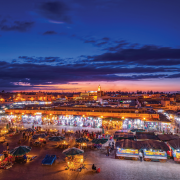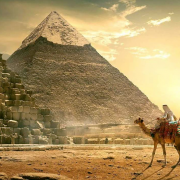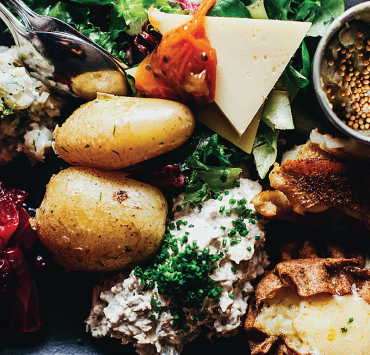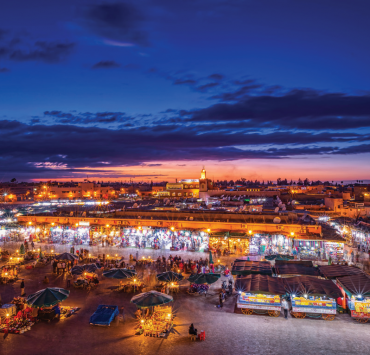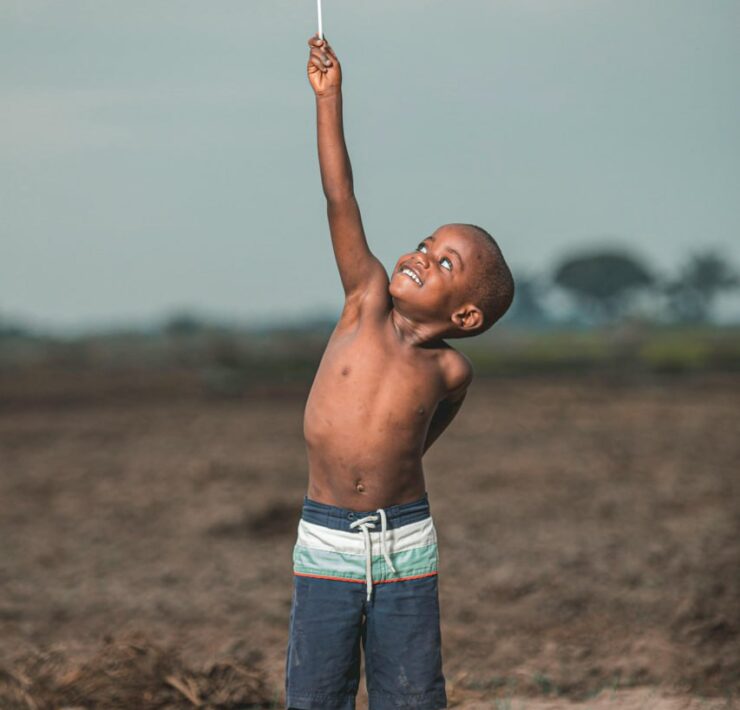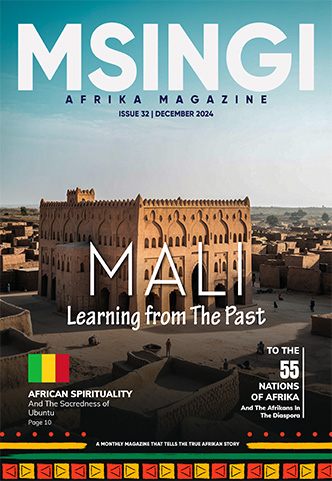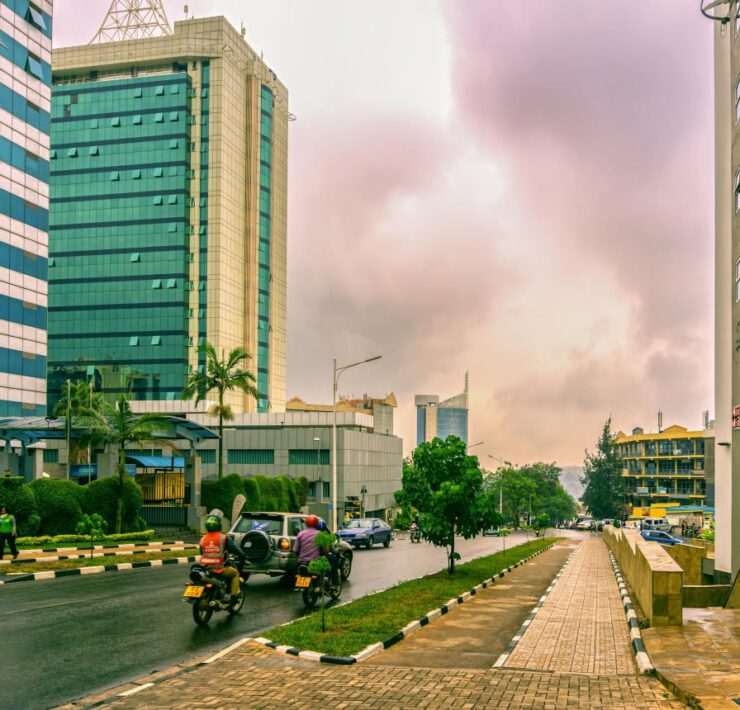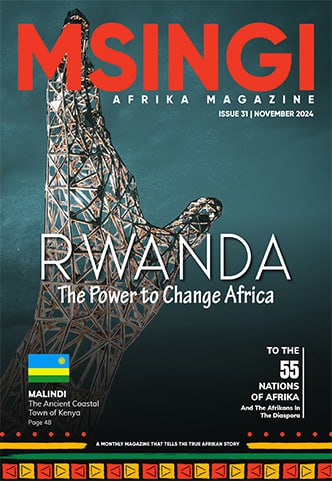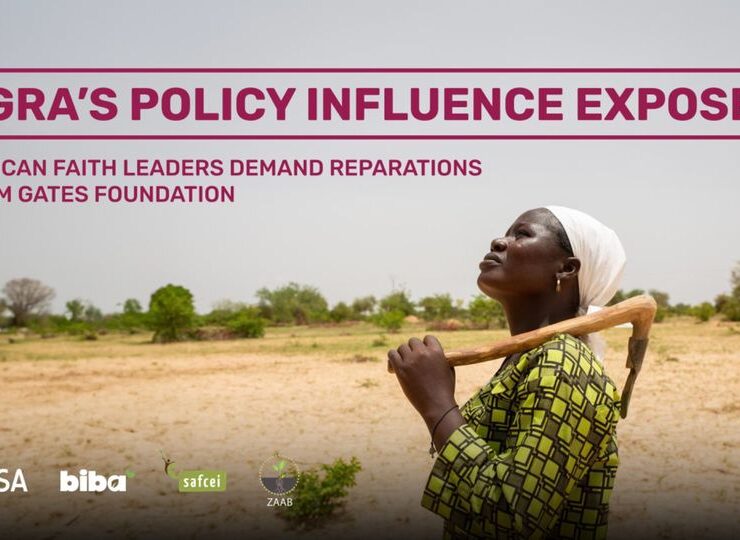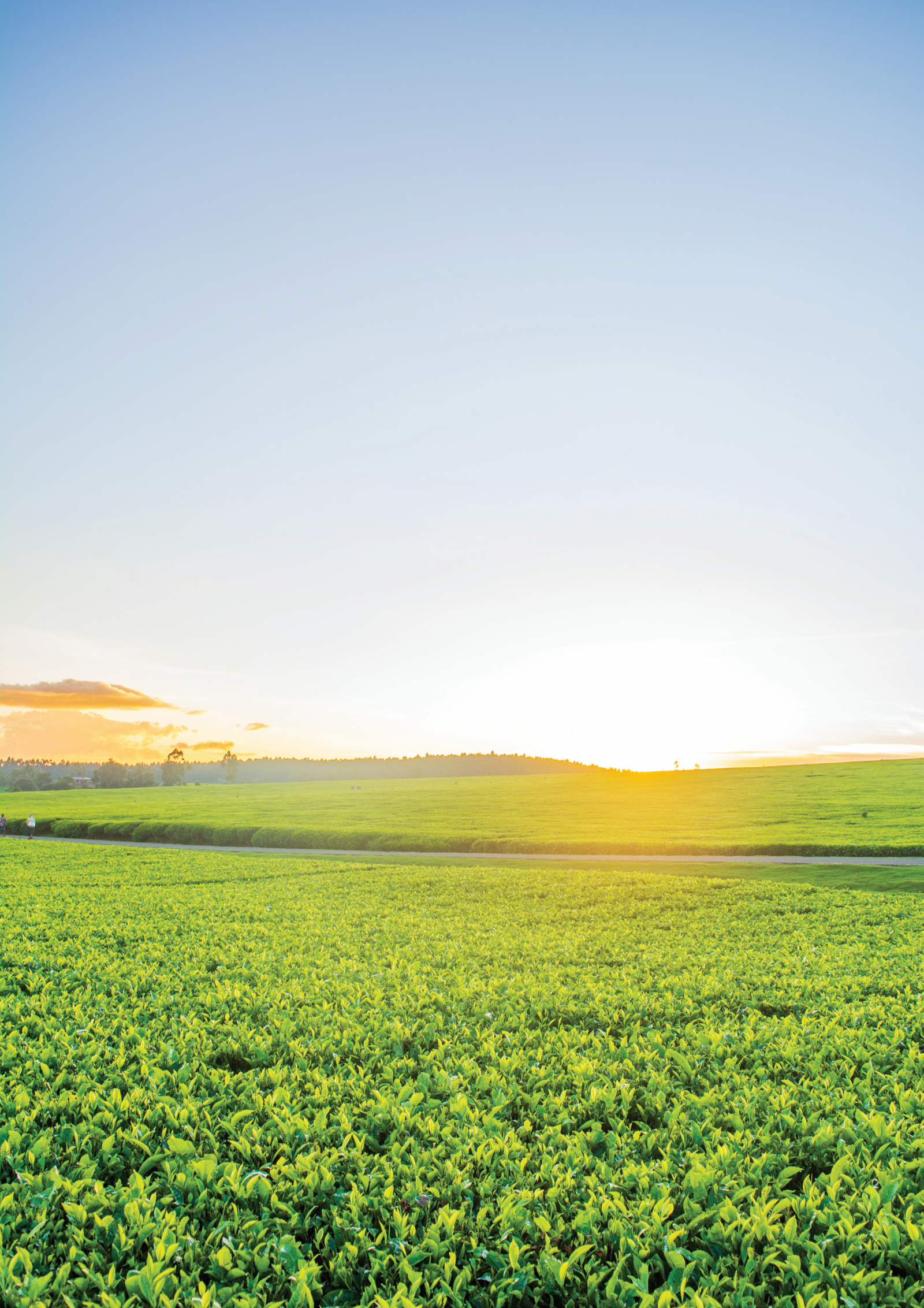
He is a transdisciplinary scholar interested in restorative cultural practices…
Read Next
ECHOES OF INDIGENOUS KNOWLEDGE SYSTEMS IN AFRIKA
On the haze of an early Kitengela morning in April, my son and I stood at our garden staring at our kale plants. It was a therapeutic experience, more so given the partial lock-down regime triggered by the latest global pandemic that has suffocated social life throughout the world. At the garden, I took time and considered Sir Robert Robinson’s observations that ‘plants are not animals’. A proclamation that may appear too obvious at inception, but very often the techniques used to protect plants from extinction, which maybe useful for humanity at this moment, are based on methods developed for animals.
In my view, it is the rich classes in our so called ‘modern societies’ including here in Africa, whose universal thirst for private profit has led them to neglect and exploit the ecosystem to the extent of breaking the unity and interdependence of an otherwise coherent natural system that has led to the current deadly outbreak of a virus we do not yet have a cure for. It is important for us to realize that the ecosystem is built on geological formations and the living forms that inhabit it are a single community of interconnected beings which includes the sun, the moon, the stars, plants, animals and humans who exist together as a compact unity. And as argued in agricology, my subject focus in this discussion, each mode of existence of each of these entities has its unique rights and functions within the totality and each is able to contribute to the existence of the other in a mutual supporting manner that benefits our planet.
Phenotypic Plasticity
At the garden, I remember asking my young son what a plant was, to which he replied that it was ‘a green, rooted to the spot, veggie that comes from a seed’. In agricology, we learn that if plants were not able to take the energy from the sun and use it to mix together air, water and soil, we simply would not be here. In other words, humanity cannot survive without nature nor can nature exist without humanity. There is as such a co-relationship between them and this co-relationship needs to be restored through a circular global agricological system. Moreover, the fact that plants are rooted to the spot, as suggested by my son earlier, is of profound importance to the plants themselves. And the analogy here is that if you are unable to run away from danger then you have to develop strategies that enable you to tolerate whatever life and nature throws at you, this according to Professor Robinson is known as phenotypic plasticity which is more developed in plants than in animals. Needless to say, the rational unity of plant and animal through a rigorous conception situated in agricology deserves a wide appeal more so at this age of Corona.
Resetting Humanity
To begin with, the fact that we are living in extraordinary times is now not debatable. In this so called Corona-era, the age of heavy guns and hardware is slowly coming to an end, and is gradually being replaced by bio, cyber, and mind wars. The concept of imminent risk and menacing danger is being reframed around non-intuitive, non-visible, and non-obvious threats. On the other hand, the impact of the global pandemic has also managed to create time for us to pause, reflect, and hopefully embrace the values of what our indigenous knowledge systems embedded in our traditional cultural practices may offer as possible remedy to the deadly Covid-19 malady.
While, psychologists, historians, sociologists and even voodoo practitioners continue to provide us with what can be described as fascinating examples of social processes interacting with perception and recall, it is indeed difficult to disagree with Thomas Frey when he observes that “We’ve just hit a giant reset button on all of humanity”, that is at present being driven by our current state of fear and panic. Needless to say, I for one consider the ongoing plague as a transition to a more inclusive society in the newly found spirit of collective action and shared responsibility.
Today, out there in the margins, all societies whether in Europe, America or here in Africa as we know it, are currently undergoing an unprecedented change, ranging from local to global, personal to political, individual to infrastructural. Communities have begun pondering over their fundamental ways of being. These contemplations are likely to shape the world of tomorrow, whenever that moment arrives. To ensure that the anticipated social changes are for the better, it is imperative for us as Africans to explore and engage with conversations that we think are crucial to our collective selves. Imagining the current pandemic as a gateway to a new world, we need to make attempts to know and pledge to change our ways of thinking, acting, and behaving in this transitional period to ensure that the ‘edited world’ that awaits us on the other side of the Covid-19 pandemic is more inclusive, understanding, and compassionate. As Africans, we must adopt the suggestion made by DaniNabudere, the godfather of Afrikology; we must expand our appreciation of indigenous knowledge systems, as well as sharpen our understandings of the notion and practice of justice within the context, diversity and differences of our cultures.
Understanding, Adjusting and Coping
In this brief piece, I want to focus on the sequential processes of ‘understanding, adjusting and coping’ with the ongoing pandemic from an agricological perspective. In doing so, I examine the everyday social management of a pandemic and show how these public health emergencies tend to surface, are accommodated, and after a while they eventually get resolved having left a strain of social, political and economic stress on communities across Africa that have historically been disadvantaged within the global power structures.
Within Africa itself, there is general agreement among political scholars that the postcolonial state, which refers to the corpus of governmental structures in the post-independence period, is still weak, flawed and ineffective and as such incapable of advancing the basic ideals of the African community. Indeed, whereas the main function of the colonial state was to maintain law and order that facilitated Europeans exploitation of Africa’s resources, the current state in Africa is still sustaining a deeply violent and authoritarian political culture. In spite of the so called ‘second liberation’ in the 1990s, for most part, the state in Africa remains a colonial construct, incapable of expressing the common good and serving the interests of citizens. The recent beatings and killings of citizens by security agencies under the auspices of administering ‘social- distancing’ serve as a tidy example of the brutal nature of the postcolonial state.
Given such a violent historical background, some scholars including Mark Derry, the American cultural critic have asked: how can a community, whose past has been deliberately rubbed out, imagine possible futures? Better yet, in our present context, how, one may add, as Africans, are we to understand and respond to the latest rapidly evolving epidemiological emergency? To their credit, most African governments have imposed some degree of restrictions to protect the populations from the spread of the virus. This is clearly an important protective step, but we also need to consider the very real danger that the Covid-19 pandemic will leave in its wake a food security crisis that could affect the political, social and economic health of African countries. According to several latest reports, over 250 million people in Africa are already living without food. These reports conclude that these vulnerable populations will suffer more from both the short – and long-term effects of the pandemic. According to the United Nations Economic Commission for Africa (UNECA), Africa’s GDP growth is expected to drop from 3.2% to 1.8% which is also likely to increase the number of people without food in Africa. In another report by the World Bank, it has been pointed out that agricultural production in Africa is likely to contract between 2.6% in an optimistic scenario and up to 7% if there are trade blockages. Food imports would decline substantially (as much as 25% or as little as 13%) due to a combination of higher transaction costs and reduced domestic demand. Overall, the World Bank report further predicted that Africa is likely to lose between $37 billion and $79 billion in output losses within 2020 alone.
African Indigenous Knowledge Systems
As Africans, in order for us to circumvent the on-going global health crisis, we must begin to transform our understanding and appreciation of the role and value that our indigenous knowledge systems has played in the past and can still play in this process. We must simply embrace the values of our traditions.
Coping with Ebola
As a way of example, during the Ebola epidemic in West Africa in 2014-2015, it was a compass of epidemiological knowledge drawn from indigenous knowledge among ordinary people that played an important part in containing the epidemic in 2015. In a new book by anthropologist Paul Richards ‘Ebola: How a People’s Science Helped End an Epidemic’, Ebola is considered a disease of poverty than a disease of ignorance. Richards describes in detail how the use of indigenous knowledge among ordinary people helped to eliminate risks of contraction that led to a rapid drop in mid-2015 in the number of cases of infection. More importantly, Richards notes that the in areas like rural Liberia where communities that had experienced earlier viral hemorrhagic outbreaks similar to Ebola, for example, the Lassa fever, most Africans survived because of the indigenous knowledge they had used during past epidemics.
Another Swedish scholar, Mats Utas, who has studied how communities in the three countries mostly affected by Ebola, namely Liberia, Guinea and Sierra Leone – all of whom had among the weakest health systems in the world – has also concluded that these communities overcame the epidemic through the use of indigenous knowledge system. Professor Utas has recently opined that those communities are more likely to fare better than others as the coronavirus pandemic spreads across Africa. This, Utas argues is because those communities understand how to use traditional knowledge system of palliative care, rehydration therapy, and other essential and functioning traditional nursing models that are helpful in limiting the spread of the virus.
Traditional knowledge systems of indigenous and local communities have been of immense value over millennia. They have filled the breadbasket that has fed the world, provided medicines that have healed the world, and provided for the sustainable management of resources, including biodiversity. In short, these knowledge systems have fed, clothed, and healed the world. They may yet hold the key to dealing with the risks posed by pandemics such as the current COVID-19 that is inducing indiscriminate fear and ripping communities across the world. Today indigenous knowledge systems are in danger of being marginalized, given the failure of the modern economy to sustain all life forms. My attempt to re-assert the values of indigenous knowledge systems and agricology is therefore an attempt to overcome the failures of modernity and global capitalism.
Agriculture
One fundamental way to rethink the current global economic system is by focusing on agriculture. This is because agriculture has always been a fundamental economy on which humanity has survived throughout the centuries. However, the modern system of industrial economic management under capitalism has undermined the vitality of the soils on which agricultural production and human, plant and animal have depended on. As Africans, we are now called upon to revive the soils and restore the basis of human survival through a new system of production, nurturing, and caring if we are to survive the consequences of the present exploitative system. This system extracts from the earth all the gifts of nature without paying the replacement costs of its exploits. After all, it is the culture of irresponsibility being perpetuated by the capitalist system which the world cannot maintain that has led us to this current crisis.
Historically, a number of researchers have pointed out that it took only twenty years (from 1980 to 2000) for humanity to move from a land-based organic ever-renewing economy to an extractive industrial non-renewable economy – the so called ‘industrial complex’ of petroleum, steel, lumbering, pharmaceutical corporations and public utilities that have all been responsible for this horrible transformation. As Nabudere, one of the foremost proponents of Agricology puts it, the industrial establishment assumed the mandate to take over the resources of the entire globe to exploit for private profit without the consent of all humanity. Today, industrial exploitations continue to cause immense global devastation, creating extensive toxicity as well as leaving vast amounts of non-disposable waste materials for poorer populations in places like Africa to deal with.
Agricology
It is against this background that principles of agricology emerge. These principles are concerned with the search to reinstate a more ecological and natural rationale into agricultural production on the basis of the resilient practices that have been passed on from ancient times. This is because for a long time, agriculturalists and developers have disregarded a deeper understanding of the nature of agro-ecosystems and the principles by which they function. Given this limitation, agro-ecology has emerged as the discipline that provides the basic ecological principles for how to study, design and manage agro-ecosystems that are both productive and natural resource conserving, and that are also culturally sensitive, socially just and economically viable.
According to Professor Nabudere, agricology goes beyond the one-dimensional view of agro-ecosystems by taking into account the genetics, agronomy, edaphology, and so on, in order to embrace an understanding of ecological and social levels of co-evolution. More importantly, agricology emphasizes the interrelatedness of all agro-ecosystems and the complex dynamics of ecological processes that are particularly useful at this moment in time for us to create a new global ethical system.
For us as Africans, the new ethical system will have to come from the highest spiritual foundations of our ancient heritage which has always contained ethical systems guiding the relationship between human beings and other forms of existence right from the Cradle of Humanity right here in Africa.
Conclusively, I am inclined to agree with the imminent Senegalese scholar Cheikh Anta Diop, who was convinced that the best way to save the Western man from his pessimism and individualistic solitude (that has currently been universalized as ‘social distancing’ in this age of Corona) rest in Africa’s social fabric.
In short, the revival and restoration of organic relationship between the human beings, the plant world and animal world which sustains all of them can only be found in indigenous knowledge systems and its subsequent cultural and spiritual wisdom. In my view, this is the only way that will move us away from the current economic systems based on capitalism to new economic systems that are based on a spiritual system that enables us to balance the economic needs of humanity and the animal world with those of nature on which we depend.
Subscribe now for updates from Msingi Afrika Magazine!
Receive notifications about new issues, products and offers.
What's Your Reaction?
 PIN IT
PIN ITHe is a transdisciplinary scholar interested in restorative cultural practices as well as the role indigenous knowledge systems play in the administration of justice in Africa. Educated at Stanmore, he read Politics at Middlesex for his undergraduate degree and Human Rights for his postgraduate at Bickbeck College. He holds two further postgraduate degrees in Ethics and in Public Administration from Nairobi. Wanda is very interested in how knowledge is generated and applied in relation to community development. His current research interests cover: Restorative democracy in Eastern Africa; Afrikology; Community Sites of Knowledge and Indigenous knowledge systems; Epistemology, Ethics and Culture. gahokenya@gmail.com








